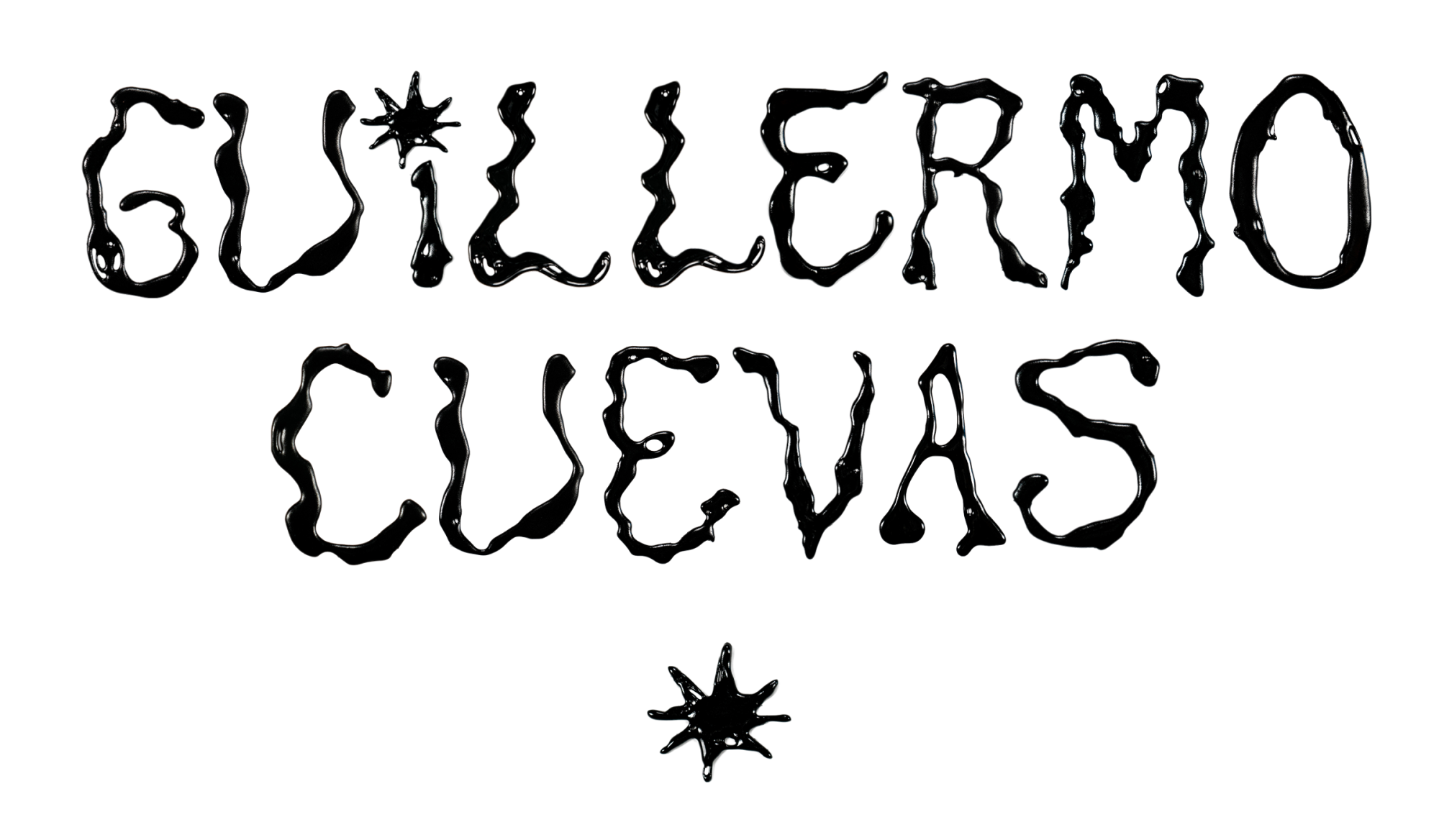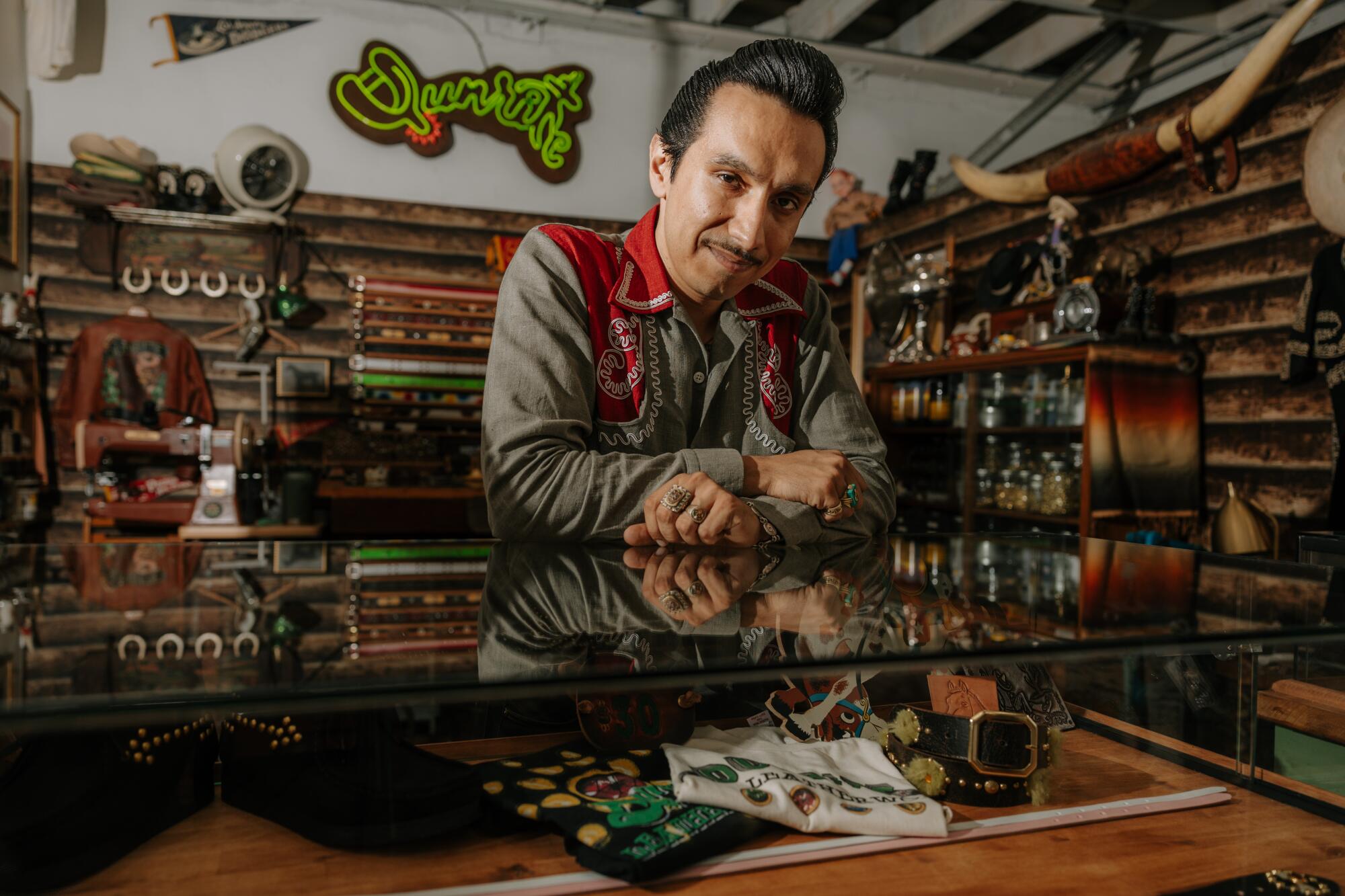
- Share via
This story is part of Image’s September Image Makers issue, celebrating some of the most daring and innovative artists working in fashion today.
This belt pays tribute to the studded belt, and is reminiscent of what Edward Bohlin would have done, which through a few Google searches you’ll see is amazing stuff. [He was designing buckles and belts] for anyone who was anyone in Hollywood in the ’20s. I’m not there yet, but how he started was just like me: He was just making himself really fancy stuff. He went to a rodeo one day, and one of the biggest stars in the country at the time, Tom Mix, was there, and he was like, “Those boots. Where’d you get those boots?” And [Bohlin] was like, “I made these.” Long story short, he got Bohlin to move to Hollywood. His company speaks for itself. But I wanted to do something like that, where it could easily be right up there next to one of Edward Bohlin’s pieces.
I do feel really proud of this belt. It’s something that I had been wanting to do for a long time. It’s fully hand-tooled, hand-painted, hand-dyed. The jewels are old stock vintage jewels, [which] means these jewels were made in the ’60s, and they’re not made anymore, so they’re really hard to find. A lot of people try to message me and ask me where I get these bits. Like, I’m not going to tell you! That’s part of the secret ingredient.
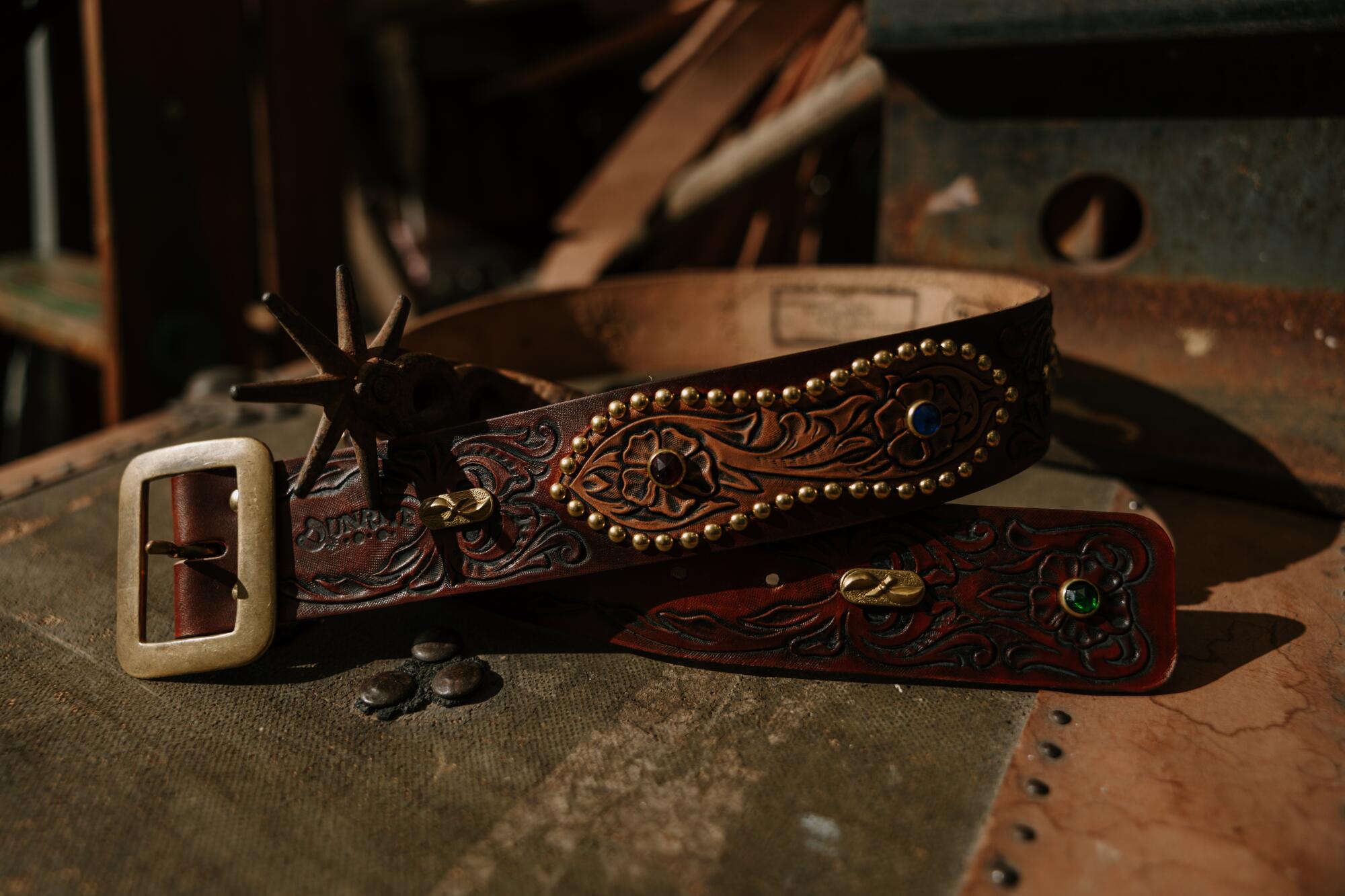
“I do feel really proud of this belt. It’s something that I had been wanting to do for a long time. It’s fully hand-tooled, hand-painted, hand-dyed.”
— Guillermo Cuevas
Since I was a kid, I’ve been around western, Mexican boots and belts. Every time we’d go to Mexico, my mom would buy me new gear and new boots. And then, as a teenager, I went to Placita Olvera, a few blocks away from me here. Everyone sells leather goods there, but there’s one shop there in particular, Murillo Leather, who I used to go to as a middle schooler through high school, and just talk his ear off. He was kind enough to let me stand there in front of his counter for hours just talking to him, asking questions. Eventually I said to him, “I’d like to try and learn.” And he was so helpful. He said, “I have leather scraps back there I can give you.” He set me up with little things to get me going.
Photographer Emanuel Hahn puts his lens on a part of Koreatown history that has not been widely archived or shared.
Fast-forward, I was just doing it for fun. I was doing it with a friend from high school, his dad had some tools, because he’s an ironworker. Eventually, my buddy wasn’t too into it, and he was like, just take those tools with you. So I took them, and this whole time, I was just making stuff for myself, posting little things here and there on my Instagram, and then little by little, friends would be like, I want something for me. I want a belt. I want a wallet. And eventually, I made something for the right friend, [who was] like, “You’ve got to sell these.” I was like, “Who’s going to want to pay for that kind of work?” It takes forever. He said, “You just make business cards, and I hope you pass them out.”
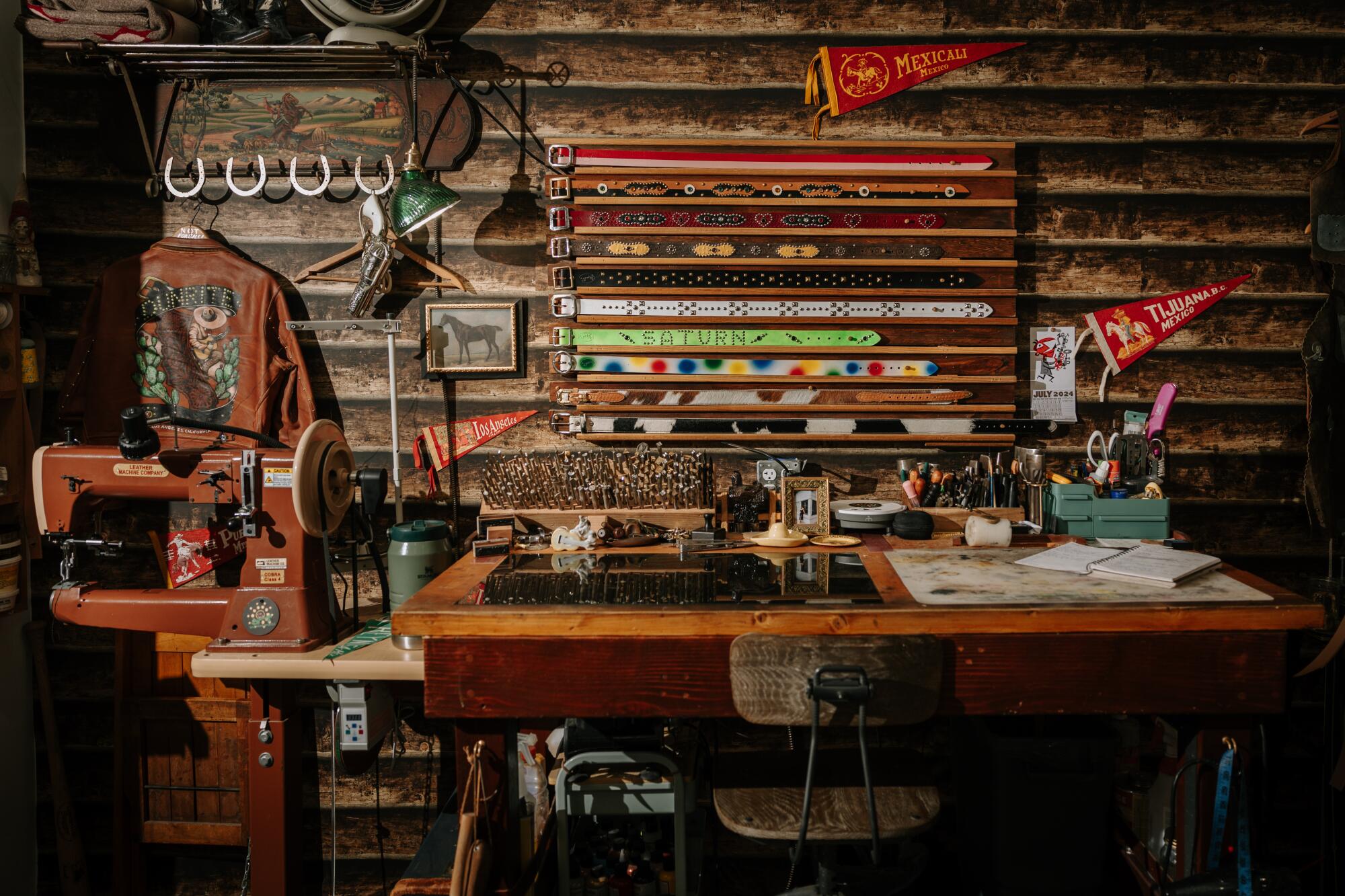
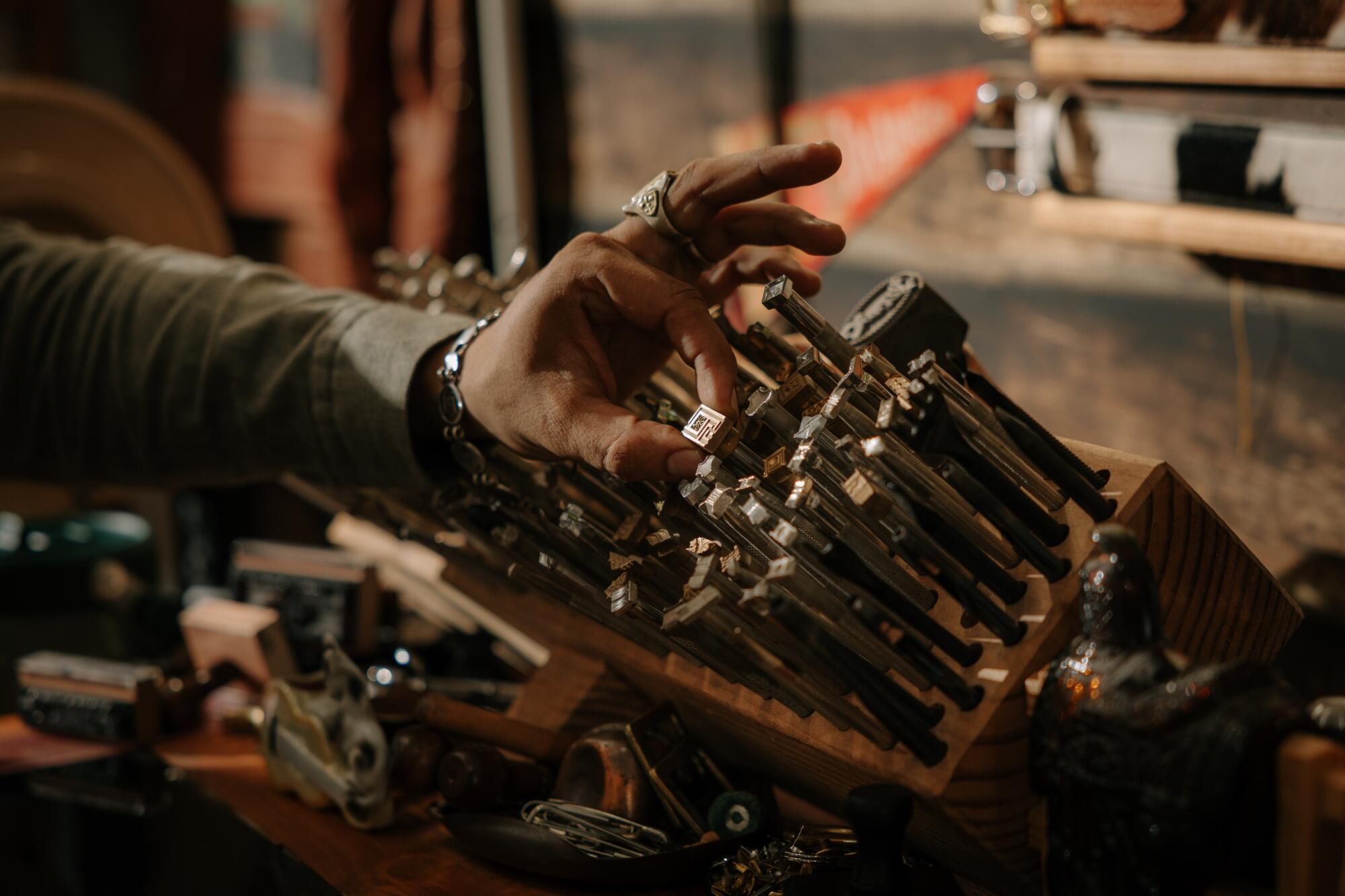
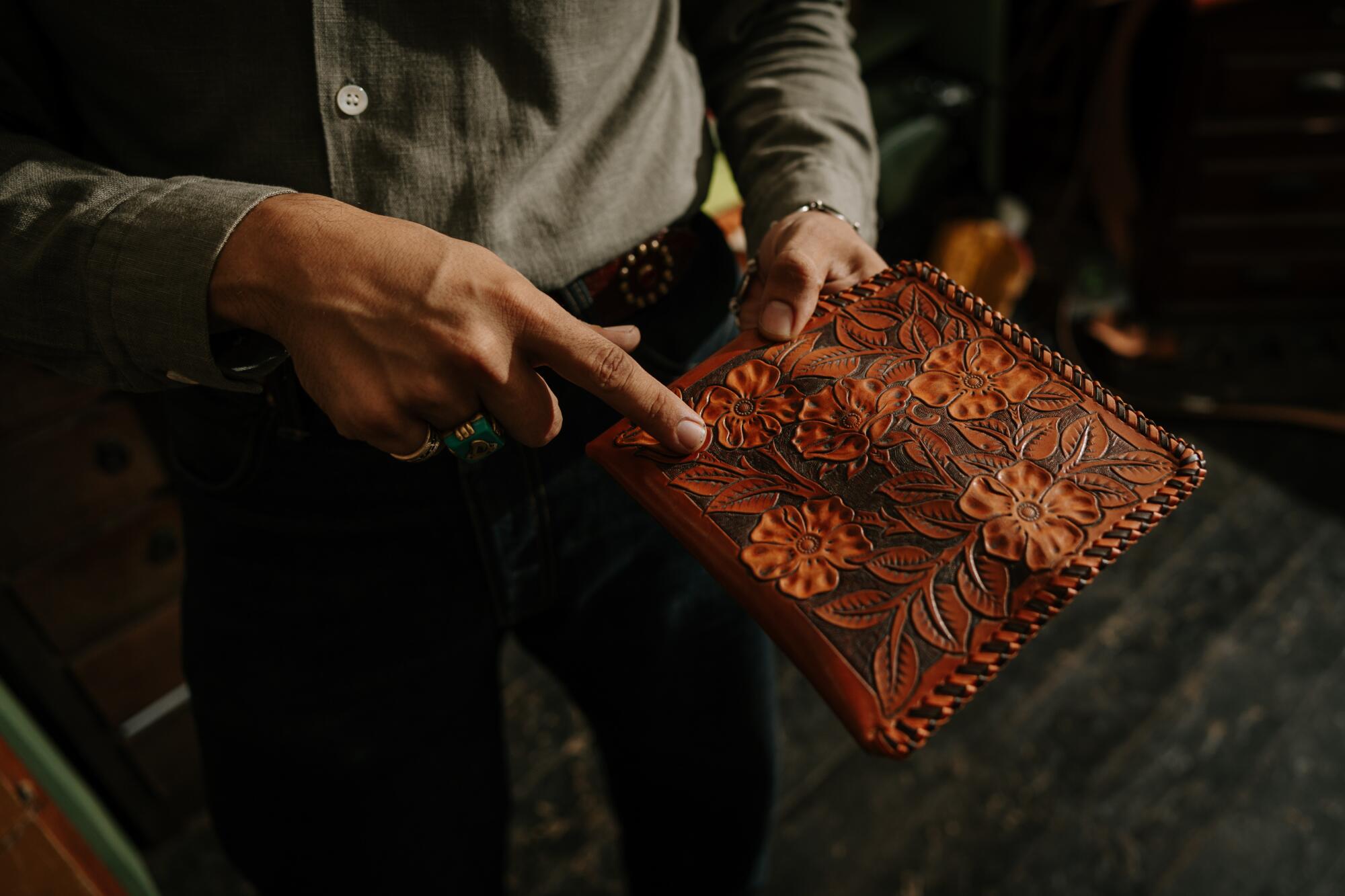
I was about to quit my retail job. I needed something new. I needed to try something else. I knew I was going to do leather goods, and it just so happened that I came to Space City Vintage. I knew the owners from the rockabilly scene. And I was telling him the whole spiel, and he said, “Bring everything and come work here.” Thankfully, things have been going good, and I’ve been able to make some pretty significant pieces for some pretty cool people. My big first one was Leon Bridges — I’ve done a whole bunch of belts for him. And then, if you know Mexican music, there’s Carin León. He’s getting pretty big. I did one for Trish Toledo. I did a few for Thee Sacred Souls, which are everywhere right now. I had a chance to make a custom bracelet for Timothée Chalamet. I even recently had Glen Powell in one of my belts in the movie “Twisters.” It just feels good.
It took a whole mess of trial and error, seeing what worked for me in terms of outlining everything, but then a few years ago, I felt like a little switch went on. I love old cartoons, and I was watching a documentary on Fleischer Studios who did Popeye and Betty Boop, and one of the cartoonists was saying, whatever you do, no matter what it is, it’s gotta have finesse. So then I was like, “Hey, yes it does!” That just kind of helped nudge me further. All you need to do is put a little bit more, and it’s going to be so much better, and people are going to notice it more.
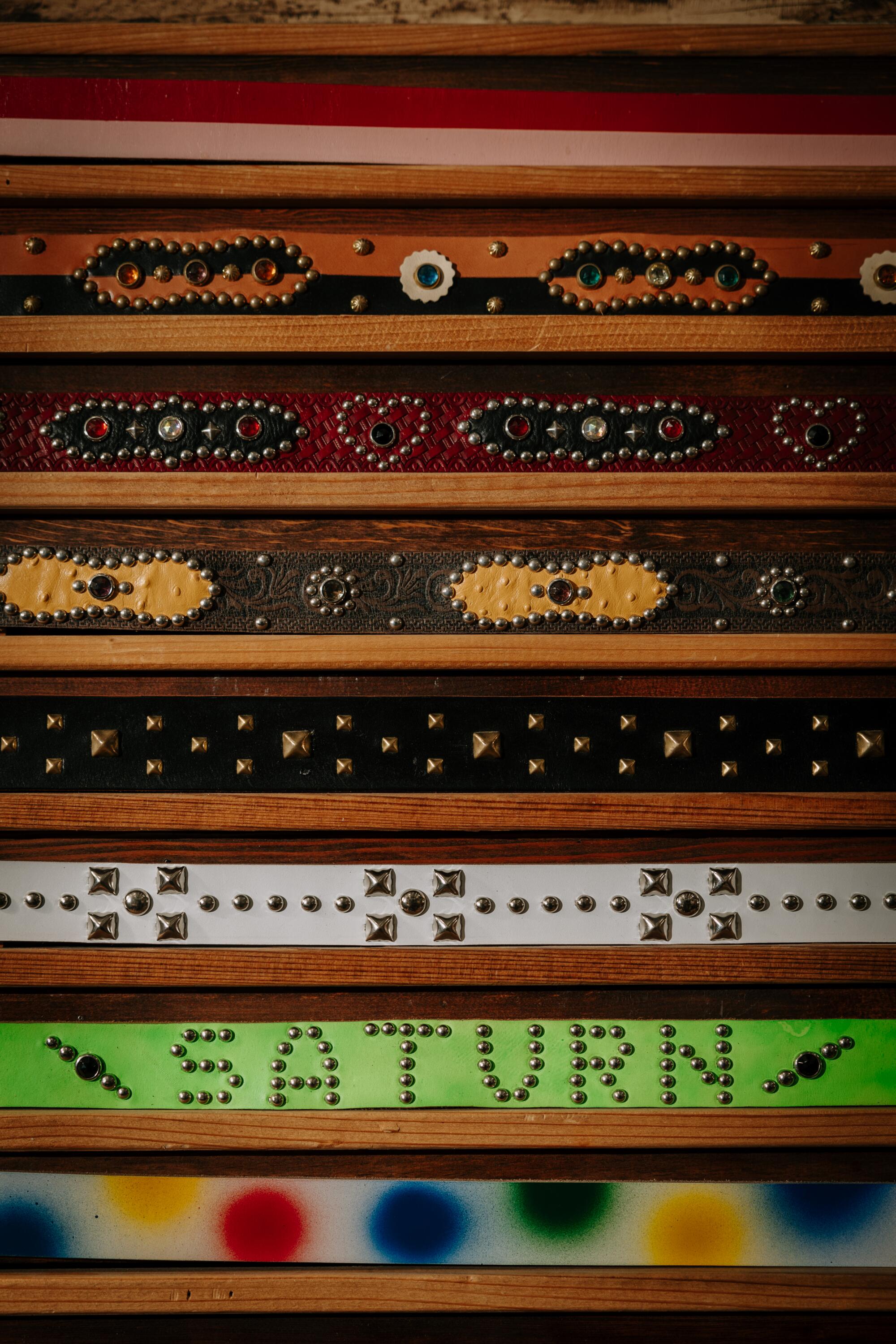
These studded belts go back to the ’20s, ’30s, ’40s, ’50s, and have been done ever since by countless people. But I really like to experiment. Most people just do what was done at a certain period, add a few colors, but that’s really where it ends. I like to add crazy colors, all kinds of stones. I love custom-making something for someone, and I don’t love having 12 of the same thing. You’ll never come to my shop and leave with something right away. I have my wait list. I have my customers that are happily waiting.
Going back to me in high school, I was obsessed with my buddy Mando’s belts [at Murillo Leather]. I wanted one with my first name, some with my last name. I wanted one in black, one in brown, one in burgundy. I had one that said “Dodgers” in blue. I just wanted everything. [A belt] just secures it all together, plainly put. That’s what a lot of people overlook. They think people don’t notice their plastic peeling belts that really don’t do their job. These are real leather belts that are tough, that you can use. They’re going to last.
—As told to Elisa Wouk Almino
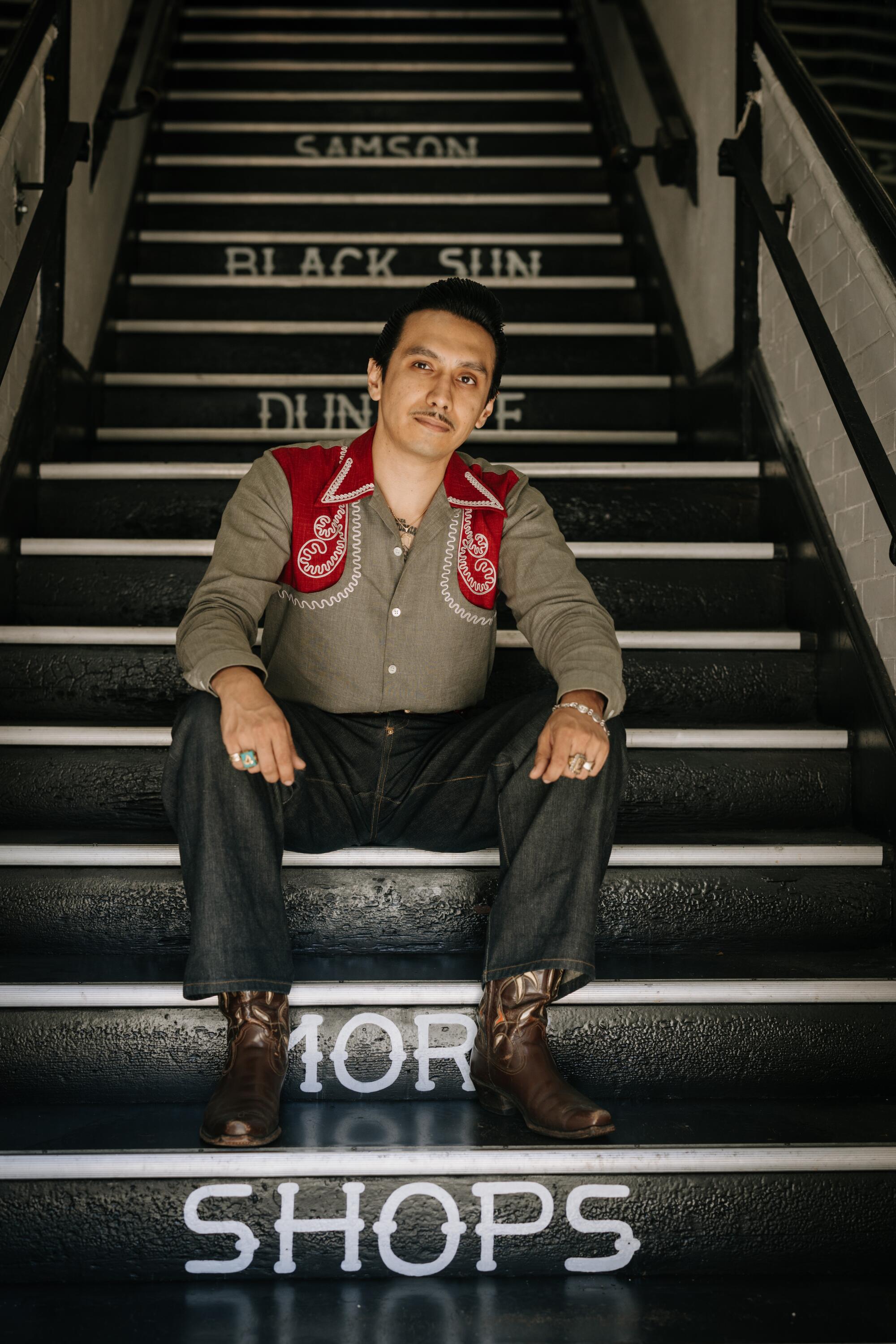
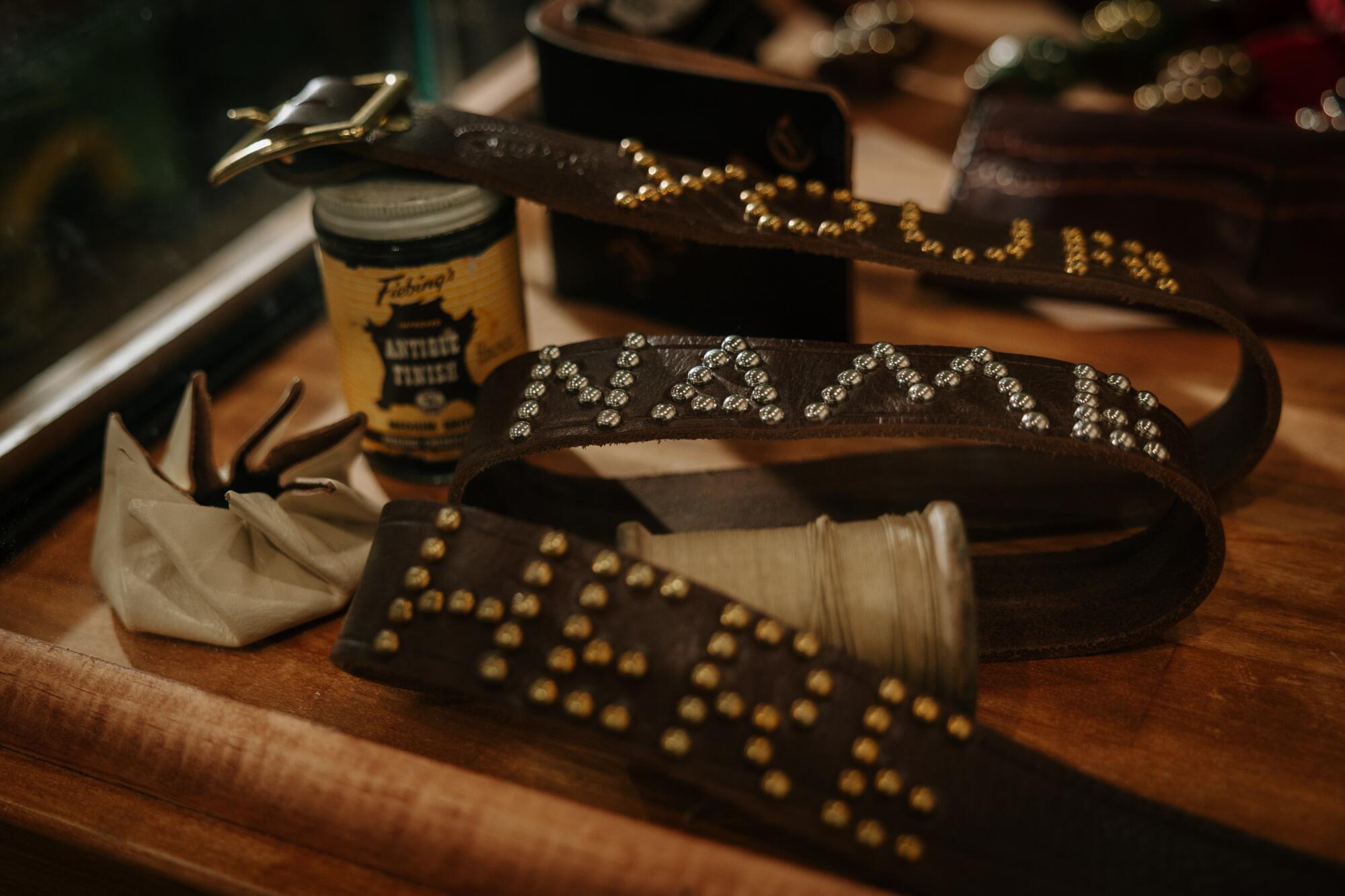
Dunrite Leatherworks is a made-to-order leather goods company based in Downtown Los Angeles, crafting bespoke pieces that seamlessly blend traditional craftsmanship with contemporary style. With a keen eye for detail and a commitment to quality, Dunrite creates unique leather goods that tell a story of skill, dedication and the vibrant spirit of L.A.
